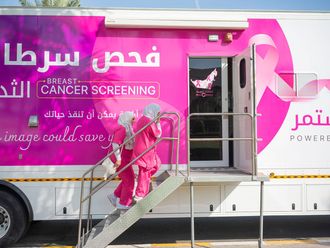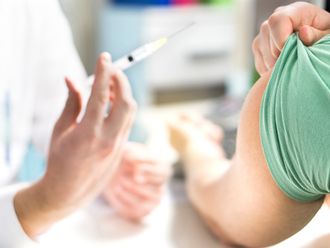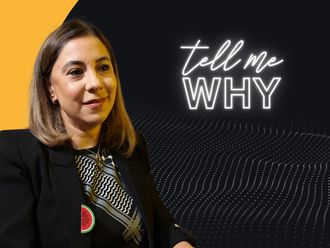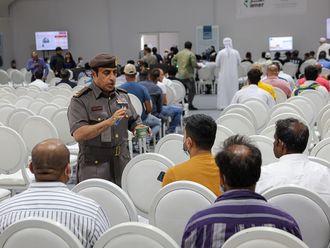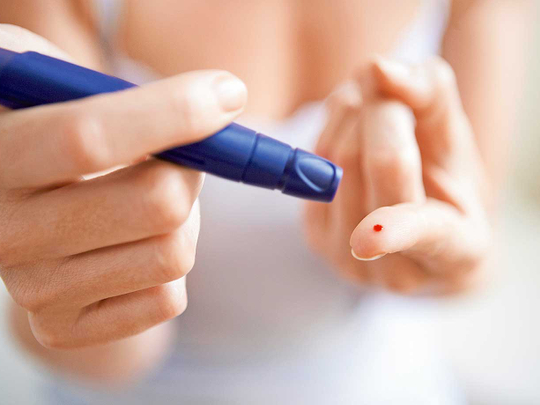
Dubai: The UAE Ministry of Health and Prevention is considering levying taxes on unhealthy food — especially highly sugary foods — to bring down the high incidence of diabetes in the country, according to health ministry officials on the occasion of World Health Day.
This year, the World Health Organisation (WHO) has declared Beat Diabetes as its main theme for 2016, with the global diabetes epidemic now affecting 422 million, according to its figures.
Dr Hussain Al Rand (left), assistant undersecretary for hospitals and clinics at the ministry, told Gulf News: “The ministry is considering putting taxes on certain unhealthy food items. This is will be done in cooperation with the Ministry of Finance.”
In the UAE, where 19.3 per cent of the population suffers from diabetes, the ministry has convened a National Diabetes Control Committee and has initiated many awareness and preventive health programmes.
The UAE National Health Agenda 2021 has a multi-pronged approach and has included diabetes as one of its Key Performance Indicators, setting a target for the ministry to bring down the incidence of diabetes by nearly 14 per cent by 2021.
Apart from convening the National Committee for Diabetes Control (NCDC) in 2015, the ministry also launched the Etmenan Initiative this year to control the incidence of non-communicable diseases (NCDs) that are a major drain on UAE’s health budget.
NCDs include all lifestyle-induced conditions such as CVD (cardiovascular disease), diabetes, hypertension and hyperlipidaemia (high cholesterol) that lead to health complications requiring hospitalisation and are life-threatening.
9 steps towards a diabetic-free life
One in eight adults now obese: global survey
Active neighbourhood can make you healthier
More doctors are prescribing excercise
Dr Fadila Mohammad Sharif, director of Health Education and Promotion at the ministry, told Gulf News: “The Ministry of Health and Prevention has been giving great importance to diabetes prevention through awareness-raising initiatives and prevention methods, encouraging people to adopt a healthy lifestyle.
"The formation of the NCDC was a turning point in this effort, augmented by UAE Vision 2021’s national agenda to reduce diabetes.”
Dr SAF Naqvi (left), medical director, consultant physician and endocrinologist at the Imperial College London Diabetes Centre, UAE, explains why going undiagnosed is such a health risk for an individual with diabetes.
“One of the key reasons that early diagnosis is so critical is [without it], the pancreas of someone living with diabetes are slowly damaged over time. The pancreas maintain the body’s blood glucose [sugar] balance, and this damage can be irreversible.”
Dr Anna Burattin (left), consultant in endocrinology and metabolic disorders, Burjeel Hospital, Abu Dhabi, said, “Almost 40 per cent of the diabetes cases are not diagnosed. This means that for every one person diagnosed with diabetes, there is almost one person who is undiagnosed. Diabetes is associated with several complications (microvascular and macrovascular) that can lead to retinopathy [at the last stage up to blindness], chronic kidney disease (CKD) [the last CKD stage to dialysis] and also atherosclerosis [plaque build-up in arteries leading to cardiovascular disease and blockage in peripheral arteries of the legs and arms]. This is why our target is to detect all patients, with diabetes and pre-diabetes.”
Among the many measures the ministry is taking to address this issue is the capacity building of the staff working in diabetes clinics to correctly manage and follow up patients according to standard national guidelines, said Dr Al Rand. Implementation of various screening campaigns to detect undiagnosed cases in the community and refer them for further investigation and follow-up is an important aspect of the ministry’s efforts.
The Landmark Group will be conducting free blood glucose tests at Oasis Mall, Dubai, from April 7-9 from 8am-4pm.
Success Stories
Alok Banerjee, 46, was diagnosed with Type II diabetes six years ago when a foot injury would not heal and revealed his post prandial [after meal] sugar levels to be over 300mgdl. With medication, balanced nutrition and regular 5km morning walks five days a week, he was able to bring down his HBA1C level (parameter for diabetes) down to 6.8 which is considered acceptable for diabetes.
Prasenita (above left) with her daughter who is her support system.
Prasanita Thapar, 57, was diagnosed with Type II diabetes in 1997 and her blood glucose reading was approximately 400mgdl then. However, proper diet and exercise have helped her bring down her fasting blood glucose levels to 100mgdl which indicates good glucose metabolism.
What is the Etmenan initiative?
Launched by the Ministry of Health and Prevention, it aims to support the overall effort in fighting the high burden of NCDs. It will also improve the preventive services provided in primary health-care centres and enhance the health-care provider’s skills.
Objectives
1. Public awareness of the importance of the ‘periodic health prevention’ services.
2. Population health empowerment that enables a more stable, healthier and positive influence on their lifestyle.
3. Early detection of the risk factors and/or conditions preventable through screening programs.
5. Promote a united collaboration and partnership with stakeholders that include both governmental and non-governmental entities to pursue early detection and health promotion.
Services provided through Etmenan
Screening services
CVD Risk Factor Detection
Overweight and Obesity
Hypertension
Diabetes
Dyslipidemia
10-year CVD risk
Osteoporosis
Cancer
Breast
Cervical
Colorectal
Depression
Vision and hearing
Other services:
Vaccination
Influenza
Tuberculosis
Pneumococcal conditions
Free tests
The Landmark Group will be conducting free blood glucose and other tests at Oasis Centre, Dubai, on Thursday from 4pm to 8pm.


